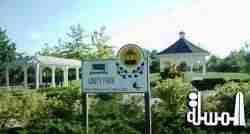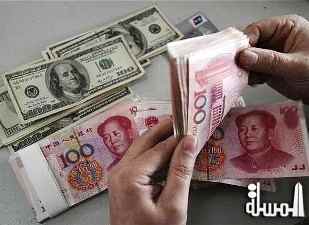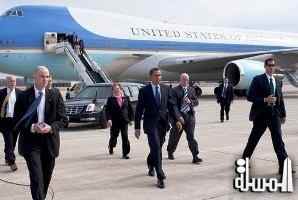
ICTP President reflects on the World Tourism Forum Lucerne Think Tank
Almasalla Travel News – I have been reflecting on the recent Think Tank that I had the pleasure of moderating during the recent World Tourism Forum in Lucerne – and how to get more attention focused on the conclusions of what the participants agreed was a very useful and thought provoking event. So here goes….
 First there was a limited attendance with a mix of top level participants, and some bright young high tech savvy entrepreneurs and a very focused agenda – essentially on managing dynamic change. Then there were two superb keynote analyses – South African Tourism Minister Marthinus Van Schalkwyk on “Bridging the Policy Silos” and TUI’s Michael Frenzel on “Hyperconnectivity”, Finally there was a vibrant debate over 10 hours with no grandstanding or bureaucratically correct speeches and a simple focused set of action based conclusions. These were to the point and I believe relevant reading for anyone involved with the sector.
First there was a limited attendance with a mix of top level participants, and some bright young high tech savvy entrepreneurs and a very focused agenda – essentially on managing dynamic change. Then there were two superb keynote analyses – South African Tourism Minister Marthinus Van Schalkwyk on “Bridging the Policy Silos” and TUI’s Michael Frenzel on “Hyperconnectivity”, Finally there was a vibrant debate over 10 hours with no grandstanding or bureaucratically correct speeches and a simple focused set of action based conclusions. These were to the point and I believe relevant reading for anyone involved with the sector.
Michael Frenzel made the central point that hyper-connectivity means hyper-risk and hyper-opportunity. He identified bold new consumer centric strategies and decisive actions that will be needed to survive and win in a world, where markets are shifting rapidly towards the high population BRICS, where new hubs are linking all points on the planet, where technology is levelling everything and where more savvy, conscientious permanently plugged in customers will be king.
Marthinus Van Schalkwyk said that the enabling policy framework had to undergo equally radical changes if society was to get the benefits that travel and tourism can deliver. We have to move beyond talking to ourselves inside our own goldfish bowl and engage a cross spectrum of government agencies and institutions whose decisions can impede or accelerate the sector’s smart transformation to a sustainable driver of the global economy. He referenced the opportunity provided by the G20 recognition of the value of boosting Travel and Tourism for trade, jobs and development and called for cross sectoral action to capitalize on aviation and tourism’s synergies, on the impetus to facilitate e-visas, and particularly on the better allocation of funding for travel and tourism as a catalyst for sustainable development and poverty alleviation.
From the ensuing discussion three main points emerged:-
1. Smarter more customer focused strategies are needed to master the new hyperconnectivity. We will need to adjust quickly/nimbly to capitalise on our potential as a job creator/ development catalyst. The key point here being for companies and organizations to engage more proactively with their customers and the communities they operate in – directly but equally importantly through the built in interactive capacity of new media. And the word engage was meant to symbolize listen and respond objectively – with a strong emphasis on the swarming tendency and unforgiving nature of the hyperconnected crowd.
2. “Greener” growth is fundamental in a resource constrained world, with more and more demand, from huge numbers of increasingly techno savvy, environmentally aware customers. What this means is that growth in the future will not be as predictable, nor as linear as in the past. While the BRICS will clearly be the new drivers it would be dangerous to over rely on them given unpredictable socio-economic and climate realities and their own adaptational challenges. It’s also time to decisively put green on the same page as growth and give it the same policy focus, statistical assessment and integration into operational planning. And to use the increasingly available technology to bring the concepts of green and growth into a more measurable, comparably measured framework. We need to evaluate objectively and with enough granularity the results that our own and other sectors’ research and experience shows.
3. We need new ways to convince Governments of the industry’s special cross cutting impact on jobs and socio/economic development. Finance Ministries, many of whom see travellers as a non-voting, higher income cash cow, need to be convinced, as do immigration and security ministries who generally see us as an added layer of complexity. The support of such Ministries is vital to unlocking the potential of the travel and tourism value chain, as is the support of international agencies, industry decision makers, at the top and bottom of the pyramid and ngo’s, as well as the traveling and host publics. In this new environment special attention should be paid to the financing issues where a sector that is responsible directly and indirectly for 5-10% of gdp (more in tourism centric regions) generally secures less than 1% of development financing. The disruptive thinking of young entrepreneurs has to be factored into the traditional thinking. The Secretary General of UNWTO agreed to host a stakeholders meeting on these issues, with special emphasis on aligned advocacy and securing equitable development funding for tourism at its intersection with the MDG’s/Poverty and the green economy.
In the final analysis, my own abiding thought remains that Travel and Tourism is so interconnected with other sectors like, manufacturing, services, telecommunications and construction that it is affected by “everything”. We are behind the curve in our response, comparatively slow to change from traditional systems and structures, dependent on big infrastructural frameworks/constraints, with massive numbers of new “wired” travellers” We have to become more customer and community focused and we have to change faster. The report would be useful reading for public and private sector policymakers as well as tomorrows leaders.”








